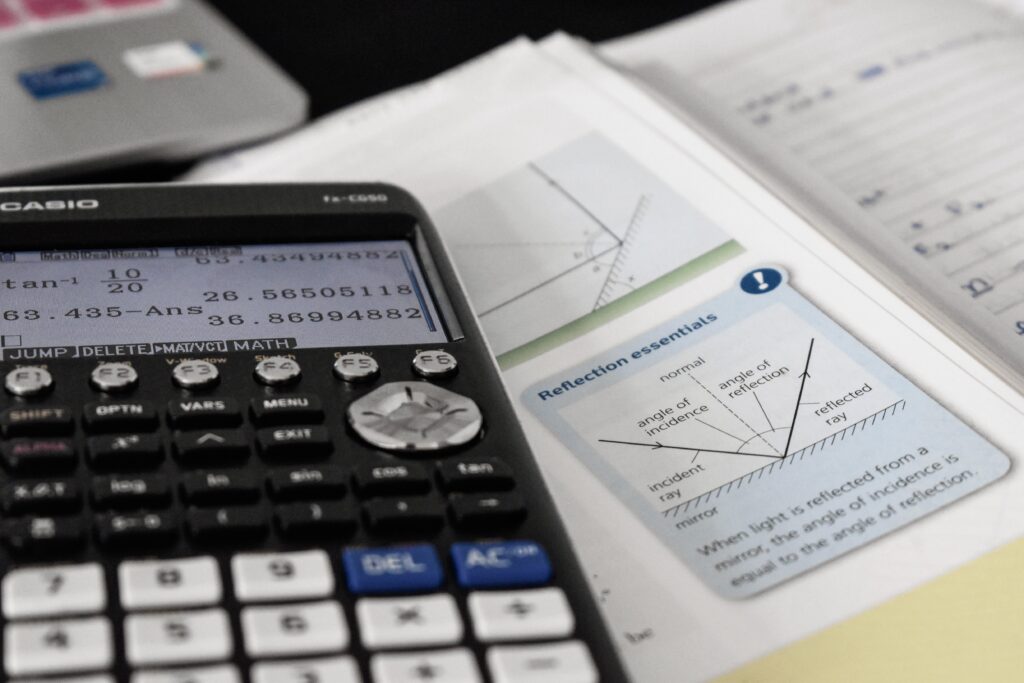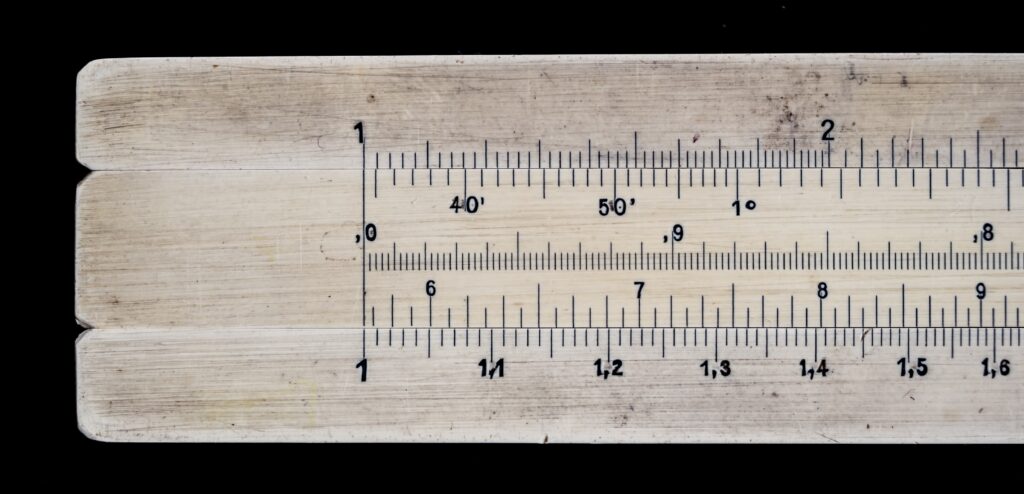Deciding which VCE subjects to take, but not sure how to choose a maths subject?
You’ve come to the right place. We’re going to cover the major differences between the levels of VCE Maths.
So, let’s dive in!
Which VCE Maths should I do?
How Should You Choose Between the Levels?
Which VCE Maths should I do?
There are four levels of VCE Maths. The VCE Maths subject you choose is based on how much you enjoy maths, your skill level and whether your uni course requires a certain prerequisite for Maths.
Foundation Mathematics (Units 1-4)
Foundation Maths is designed to provide students with the knowledge and skills to solve mathematical problems in a variety of real-world contexts. The following areas of study are covered in Foundation Maths:
- Algebra, number and structure (e.g. fractions and algebra problems)
- Data analysis, probability and statistics (e.g. mean, standard deviation, box plots)
- Financial and consumer mathematics (e.g. calculating interest on loans)
- Space and measurement (e.g. calculating areas and volumes)
General Mathematics (Units 1-4)
General Maths consists of a four unit sequence designed to be completed in Years 11 & 12.
It covers some of the same material as Foundation Maths, with added depth and complexity. The areas of study are:
- Data analysis, probability and statistics
- Algebra, number and structure
- Functions, relations and graphs (e.g. using linear models)
- Discrete mathematics (Matrices)
Mathematical Methods (Units 1-4)
Mathematical Methods is the intermediate difficulty maths, which aims to provide students with a background in calculus and statistics that is required for any scientific pursuit.
The following areas of study are covered:
- Functions, relations and graphs (including quadratics, cubics, exponential and logarithms)
- Algebra, number and structure
- Calculus (Differentiation and Integration)
- Data analysis, probability and statistics
Specialist Mathematics (Units 1-4)
This is the most difficult level of VCE maths, covering some content from Mathematical Methods in greater depth as well as some more advanced, pure maths. Mathematical Methods must be completed along with Specialist Mathematics.
In Specialist Maths, you’ll complete the following areas of study:
- Logic and proof
- Functions, relations and graphs
- Complex numbers
- Differential calculus and integral calculus
- Differential equations
About to make the leap up to Year 12? Here’s how to ACE it and achieve your ATAR Goal!
How Should You Choose Between the Levels?
Each level of VCE maths has its own challenges and benefits, and these need to be weighed up when deciding which to choose.
Do I Need To Study Maths?
Short answer: no.
Mathematics is not mandatory for your VCE studies.
However, mathematics is key for understanding so much of the world around us, from how computers work to how diseases spread.
A background in maths is also vital for any scientific pursuit. Further, many employees see mathematics as a gauge of how smart someone is, so failing to complete a mathematics subject may hold you back.
So even if you’re not passionate about maths, consider completing at least some mathematics in VCE in order to broaden your horizons and avoid limiting your options later in life.
Is VCE Maths Methods Hard?
Mathematical Methods is the second most difficult level of mathematics, and will require you to reckon with concepts such as probability, calculus, and graphing.
This is a significant step up from General Mathematics, so you should be careful when choosing this level.
Consider how well you have done in mathematics in the past, and whether you enjoy mathematics. If you seriously dread mathematics, then completing two years of Maths Methods could easily drain you and detract from your other studies.
Maths Methods is quite the step up from your previous maths studies, but consider giving it a go anyway, as you can simply switch to a different level if its too much.
Not sure whether your Year 11 grades will count towards your ATAR? Find out the answer here!
What Courses Require Specialist Maths?
Specialist maths is not a requirement for any course: both science and engineering courses only require methods as a prerequisite.
However, if you do intend to study engineering, you will need to complete a maths unit that covers the same content as Specialist in the space of 12 weeks.
This might be even more difficult than VCE Specialist Maths, so if this is your intention then it would be best to complete VCE Specialist Maths.
Want to study Engineering in the future? Check out what an Engineering degree at RMIT is like here!
Is It Worth Doing Specialist Maths If I Don’t Really Like Maths?
Here, we’re going to go against type and say that no. If you really dread Maths, then Specialist is not for you.
However, you should consider where your dread of Mathematics comes from.
Maths is more than just calculating angles and distances, and it often produces intriguing and even beautiful results.
Specialist involves working on abstract concepts, and rigorously proving theorems and results.
This ends up being very different from all the maths you’ve done so far in school. If you have some skill at maths and are interested in any maths content you see online (Numberphile, for example), then consider giving Specialist a go.
If it doesn’t work out, you can always drop it and only complete methods at Year 12!
What About Subject Scaling?
By this point you may be aware that your results from each subject are scaled in order to account for differences in the difficulty of each subject.
While it is true that Methods and Specialist are significantly scaled up, they are also significantly more difficult.
If you perform poorly in these subjects, scaling will not save you, and the extra time spent working on a subject you are not skilled in may detract from your performance in other subjects.
So Should I Just Choose the Easiest Maths Subject Then?
You might think that this is the best strategy, however if you intend to work towards any qualification that requires maths (such as commerce), then you may need to complete the same content in an even shorter time frame.
Read up on Rory’s story on what it’s like studying a Bachelor of Commerce at Melbourne Uni here!
It’s best to get through maths now while you’re in VCE rather than leaving it for when you’re at uni.
If you are thinking about taking a Maths subject and need some support, you can get some help from our tutoring Melbourne team!
What If I’m Worried About Failing Maths?
If you are worried about if you are going to succeed, either in Methods or General Maths, don’t fret yet!
Sometimes all we need as students is a bit of help to succeed, and so getting a tutor or coach can help with this!
Check out our Melbourne maths tutoring to get booked in with one of our expert team today!
What If I Can’t Make Up My Mind?
If you still need more advice, consider asking your maths teacher what is the hardest level of maths they think you could cope with.
In general, it’s best to try a harder unit in Year 11. If this turns out to be too much, you can simply go down to an easier unit for Year 12!
Learn how to make the most of your holiday study before the VCE exams here!
And, That’s All!
Check out our resources for VCE Maths here:
- The Ultimate Guide to VCE Maths Methods Unit 1 and 2 Practice SACs
- What to Do the Night Before Your VCE Maths Methods Exam
- How to Ace Your End of Year Exams for VCE Maths Methods
- VCE Maths Methods Past Papers Master List
Are you looking for some extra help with choosing your VCE Maths subject?
We have an incredible team of VCE tutors and mentors!
We can help you choose your best VCE Maths subjects and ace your VCE assessments with personalised lessons conducted one-on-one in your home or online!
Don’t make this decision on your own! Consult with one of our Cranbourne VCE tutors!
We’ve supported over 8,000 students over the last 11 years, and on average our students score mark improvements of over 20%! See these kinds of results in Glen Waverley with one of our local tutors!
To find out more and get started with an inspirational VCE tutor and mentor, get in touch today or give us a ring on 1300 267 888!
Scott McColl is a content writer with Art of Smart and a Civil Engineering student at Monash University. In between working and studying, Scott enjoys playing music and working on programming projects.






